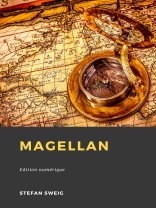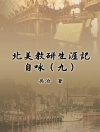Magellan est un récit historique de Stefan Zweig publié pour la première fois à Vienne (Autriche) en 1938. Il retrace la vie et les voyages du navigateur et explorateur portugais Fernand de Magellan, et en particulier le premier tour du monde de l’histoire de la navigation et la découverte du passage entre l’océan Atlantique et l’océan Pacifique par la pointe méridionale de l’Amérique du Sud, détroit qui porte désormais son nom.
À PROPOS DE L’AUTEUR
Ami de Sigmund Freud, Arthur Schnitzler, Romain Rolland, Richard Strauss, Émile Verhaeren,
Stefan Zweig a fait partie de l’intelligentsia juive viennoise, avant de quitter son pays natal en 1934, à cinquante-trois ans, en raison de la montée du nazisme. Réfugié à Londres, il y poursuit une œuvre littéraire, de biographe (Joseph Fouché, Marie-Antoinette, Marie Stuart) mais surtout d’auteur de romans et nouvelles :
Amok, La Pitié dangereuse, La Confusion des sentiments, Le Joueur d’échecs. Dans son livre testament,
Le Monde d’hier. Souvenirs d’un Européen, Zweig se fait chroniqueur de cet « âge d’or » de l’Europe, et analyse ce qu’il considère comme l’échec d’une civilisation.
Stefan Zweig
Magellan [EPUB ebook]
Magellan [EPUB ebook]
Acquista questo ebook e ricevine 1 in più GRATIS!
Lingua Francese ● Formato EPUB ● Pagine 150 ● ISBN 9782384610266 ● Dimensione 0.8 MB ● Casa editrice Librofilio ● Paese BE ● Pubblicato 2022 ● Scaricabile 24 mesi ● Moneta EUR ● ID 8661697 ● Protezione dalla copia DRM sociale












